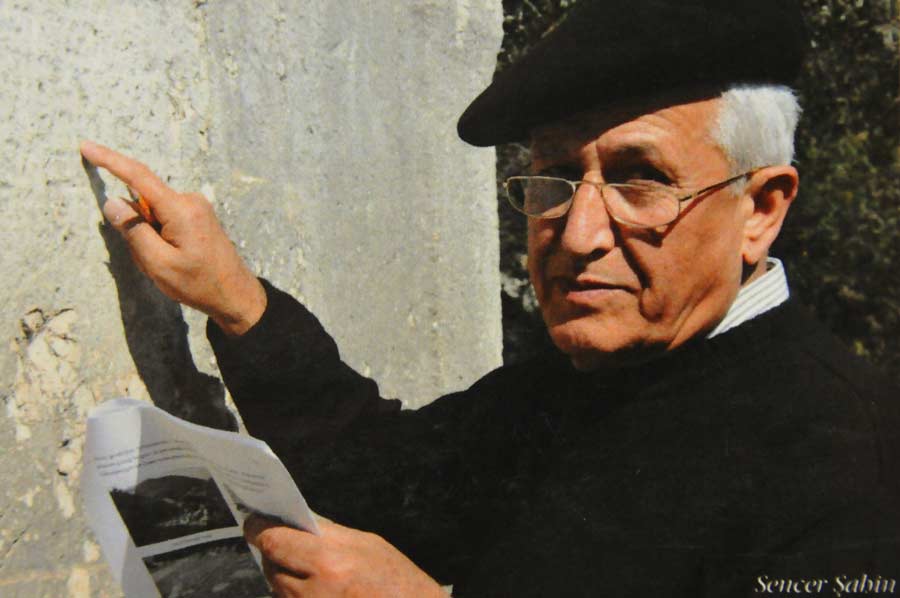 The Department of Ancient Languages and Cultures was established in 1997 on the initiative of the late Prof. Dr. Sencer Şahin. Şahin summarised the aim of the department as follows: "The mission of the Department of Ancient Languages and Cultures within the Faculty of Letters of Akdeniz University is to educate generations who will be able to recognize this mission and pass it on to future generations in the right way by placing the relationship between homeland, history and cultural consensus on a scholarly basis and by organising their education and training programmes within this framework, by ensuring that our people, who have lived through all phases of European and Pre-Asiatic history, have collected all the cultural products of the Western and Eastern world in the classical sense, and who are the only official heirs of this heritage today, fully embrace the historical heritage within the borders of today's Turkey, and appropriate it to themselves as well as to humanity."
The Department of Ancient Languages and Cultures was established in 1997 on the initiative of the late Prof. Dr. Sencer Şahin. Şahin summarised the aim of the department as follows: "The mission of the Department of Ancient Languages and Cultures within the Faculty of Letters of Akdeniz University is to educate generations who will be able to recognize this mission and pass it on to future generations in the right way by placing the relationship between homeland, history and cultural consensus on a scholarly basis and by organising their education and training programmes within this framework, by ensuring that our people, who have lived through all phases of European and Pre-Asiatic history, have collected all the cultural products of the Western and Eastern world in the classical sense, and who are the only official heirs of this heritage today, fully embrace the historical heritage within the borders of today's Turkey, and appropriate it to themselves as well as to humanity."
The main field of education and training of our department is all written works that have survived from ancient times to the present day, and the cultures to which these works belong. Within the framework of our current departmental structure, a considerable part of these written works are Ancient Greek and Latin sources that fall within the field of Classical Philology. It is among the current goals of our department to ensure the comprehension and recognition of the Ancient Greek and Roman civilisations, which have had a great influence on the structuring of European Civilisation, a large part of which is based on the cultural accumulation of Anatolian origin. Our current two divisions, "Ancient Greek Language and Literature" and "Latin Language and Literature", serve this purpose.
There are two different undergraduate programmes in our department. Ancient Greek Language and Literature programme started its education in 1998 and that of Latin Language and Literature in 2019. Since they are intertwined both in terms of their linguistic structure and historically, culturally and administratively, the Classical Philology formation is based on a model of education in which both programmes are interrelated. Although a student takes more and more detailed courses specific to the programme to which he/she is affiliated, basically, by learning both Ancient Greek and Latin, they are trained to understand literary texts and other documents written in both languages, and to interpret historical, geographical and cultural elements of both civilisations. Each year approximately 60 students enrol in the Ancient Greek Language programme and approximately 30 students enrol in the Latin Language programme. Since there are separate regulations, separate syllabuses, separate curricula and separate procedures for both programmes, many procedures are sometimes carried out as if they were two separate departments.
Although our department has adopted a system based on Classical Philology, the most important difference from other departments with the same name is that the discipline of epigraphy is predominantly taught and performed. As such, the Department of Ancient Languages and Cultures at Akdeniz University is the first and only epigraphy-orientated department in Turkey. In the most general definition, epigraphy is the discipline that studies inscriptions. Epigraphic texts require expertise according to the period, culture, language and the nature of the bearer to which the text is applied. Epigraphists read and interpret inscriptions, in this process they transcribe, translate, interpret, and date the inscriptions using period and language-specific methods, and they make comparative studies of all kinds of information details that can be found in the text, such as words, expressions, language structure, historical or geographical references, social, religious and cultural relations, administrative and military connections, and the relationship with the place or structure they are located in, by establishing a relationship with other texts. Our epigraphic study areas are ancient cities, museums and field surveys. In this sense, almost all of our members conduct field studies and/or go to museums in the summer months to work on the inscriptions in these study areas. The members of our department mostly carry out these field studies within the scope of projects or with the support of local administrations.
Son güncelleme : 24.03.2023 10:01:29
